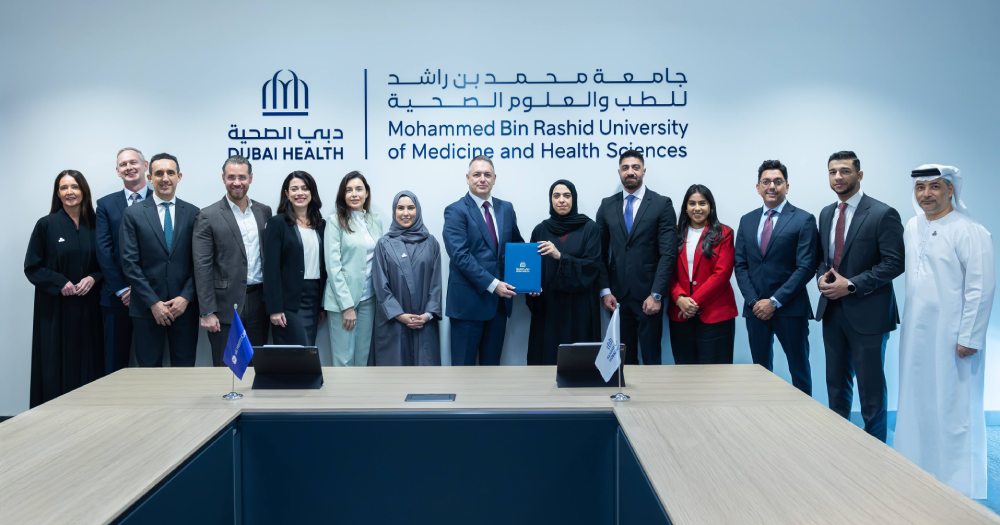Dubai Health, GE HealthCare to enhance PoC ultrasound education and practice in the region

When healthcare meets cutting-edge tech, sparks fly — and sometimes those sparks light up an entire region. That's what's happening with the new partnership between Dubai Health and GE HealthCare. The two powerhouses have signed a Memorandum of Understanding to supercharge Point-of-Care Ultrasound (POCUS) education and practice across the Middle East and North Africa (MENA).
At its core, this collaboration is about smarter decisions, faster diagnoses, and better outcomes for patients. Or as Dr. Hanan Al Suwaidi of Dubai Health puts it: "We are empowering clinicians with next-generation technologies to improve patient outcomes."
How does it work?
This isn't just a handshake and photo-op. There's real meat on the bone here. The plan includes:
- Establishing Mohammed Bin Rashid University of Medicine and Health Sciences (MBRU) as a POCUS Education Center of Excellence.
- Launching a Train-the-Trainer (TOT) program to build a regional army of certified facilitators.
- Scaling education to reach more students, clinicians, and hospitals across borders.
- Co-developing AI-powered diagnostic tools that can spot problems faster and more accurately — think radiology meets computer vision.
GE HealthCare brings the tech muscle — its deep bench of AI tools and world-class imaging systems — while Dubai Health offers the academic depth and innovation culture to make it stick. It's a one-two punch aimed squarely at outdated, slow, or fragmented care.
As Dr. Rasha Buhumaid, POCUS Program Director at MBRU, explains: "This collaboration enables us to strengthen the integration of POCUS into clinical practice, build sustainable expertise, and support better outcomes at the point of care and across the health system."
Why does it matter?
Here's the thing: early detection saves lives, and faster diagnoses ease pressure on overstretched healthcare systems. But many frontline clinicians still lack access to reliable imaging or the know-how to use it effectively. That's where POCUS comes in — compact, powerful, and right at the patient's bedside.
Now add AI to the mix. That's like giving every doctor a second brain trained on thousands of medical cases.
This matters for several reasons:
- Fewer misdiagnoses: AI helps spot what human eyes might miss.
- Faster triage: Especially critical in ERs, rural clinics, or crisis zones.
- Stronger systems: With local trainers, the knowledge sticks and scales.
As GE HealthCare's Konstantinos Deligiannis put it, "We're combining advanced ultrasound technology with innovative AI to enhance diagnostic accuracy and efficiency."
The context
MENA's health systems are at an inflection point. With growing populations, rising chronic disease, and unequal access to quality care, there's a real need for scalable, tech-driven solutions.
Dubai, always quick to lean into innovation, is positioning itself as a regional leader in digital health and medical education. The partnership with GE HealthCare isn't just about upgrading equipment — it's about planting seeds for long-term change.
Professor Nabil Zary of Dubai Health hit the nail on the head: "Education is at the heart of sustainable healthcare transformation." And he's right. This partnership isn't just putting tools in doctors' hands; it's giving them the training and confidence to use them, adapt them, and pass the skills forward.
The MoU runs for two years — renewable by mutual agreement — but the impact? With the right follow-through, it could echo for decades.
💡Did you know?
You can take your DHArab experience to the next level with our Premium Membership.👉 Click here to learn more
🛠️Featured tool
 Easy-Peasy
Easy-Peasy
An all-in-one AI tool offering the ability to build no-code AI Bots, create articles & social media posts, convert text into natural speech in 40+ languages, create and edit images, generate videos, and more.
👉 Click here to learn more


